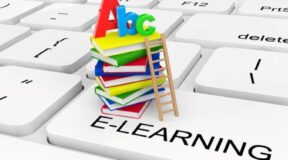Are you tired of spending hours studying without seeing significant improvements in your grades? Are you looking for innovative study techniques for students to enhance your learning experience? Look no further! In this article, we will explore effective strategies that can help you boost your grades and excel academically. By incorporating these techniques into your study routine, you can optimize your learning potential and achieve your desired academic success.
As a student, studying effectively is crucial for academic success. However, traditional study methods may not always yield the desired results. To truly excel, you need innovative study techniques that engage your mind, enhance your understanding, and promote the retention of information.
Set Clear Goals
Before diving into your study sessions, setting clear goals is essential. Clearly defined objectives give you direction and purpose, helping you stay focused and motivated. When setting goals, ensure they are specific, measurable, attainable, relevant, and time-bound (SMART). For example, instead of setting a vague goal like “study math,” make it more specific by stating, “solve five math problems from chapter 3 within 30 minutes.”
Create a Study Schedule
To make the most of your study time, it is crucial to create a study schedule. A well-structured schedule helps you manage your time effectively and allocates sufficient time to each subject or topic. Start by assessing your commitments and available study hours. Then, create a schedule that incorporates regular study sessions and breaks. Remember to be realistic and flexible in your planning to accommodate unexpected events or changes in priorities.
Active Learning Strategies
Passive reading and memorization can only take you so far. To truly understand and retain information, engage in active learning strategies. Active learning involves actively participating in the learning process through discussions, problem-solving, and hands-on experiments. Rather than passively receiving information, actively participate in your own education. Seek opportunities to apply your knowledge and connect concepts to real-life examples.
Utilize Visual Aids
Visual aids can be powerful tools for enhancing your study experience. Visual representations of information can improve comprehension and memory retention. Incorporate diagrams, charts, mind maps, and flashcards into your study routine. For example, creating colorful diagrams illustrating different biological processes when studying biology. When reviewing vocabulary, use flashcards with words on one side and definitions on the other. These visual aids will help you visualize concepts and make learning more engaging.
Practice Retrieval
Retrieval practice is a highly effective study technique that involves recalling information from memory. Instead of simply rereading notes or textbooks, actively retrieve and test your knowledge. This can be done through self-quizzing or online resources that provide practice questions. Retrieval practice strengthens your memory and reinforces learning. Regularly recalling information makes you better prepared for exams and you can retrieve knowledge more easily in real-world scenarios.
Develop Effective Note-Taking Skills
Taking effective notes is an art that can significantly enhance your learning process. When listening to lectures or reading textbooks, jot down key points, summaries, and examples. Develop your own system of shorthand or symbols to capture information quickly. Logically organize your notes, using headings, bullet points, and highlighting to make important details stand out. Reviewing and revising your notes regularly will reinforce your understanding of the material.
Use Technology to Your Advantage
In today’s digital age, technology offers many tools and resources to aid in studying. Explore various apps, websites, and software that cater to different learning styles and subjects. Use note-taking apps to digitize and organize your notes, allowing for easy search and retrieval. Utilize educational platforms and online courses to access additional learning materials and interactive exercises. Technology can supplement traditional study methods and provide a dynamic and engaging learning experience.
Find the Right Study Environment
Your study environment plays a crucial role in your productivity and focus. Find a space that is comfortable, well-lit, and free from distractions. Some individuals work best in complete silence, while others thrive with background music or ambient noise. Experiment with different environments to discover what works best for you. Keep your study area clean and organized, as a clutter-free space can help clear your mind and promote concentration.
Manage Time Effectively
Time management is key to balancing your academic workload and other responsibilities. Allocate dedicated time slots for each subject, ensuring a balanced distribution of your study hours. Break down complex tasks into smaller, manageable chunks to avoid feeling overwhelmed. Set realistic deadlines for completing assignments and studying for exams, and avoid procrastination. Prioritize your tasks based on urgency and importance, and consider using time management techniques such as the Pomodoro Technique (working in focused bursts with short breaks) to enhance your productivity.
Stay Motivated
Staying motivated throughout your study journey can be challenging. However, you can maintain your drive and enthusiasm by employing certain strategies. Set rewards for yourself after achieving study milestones and celebrate your progress. This could be treating yourself to a favorite snack, taking a short break to do something you enjoy, or engaging in a hobby. Surround yourself with positive affirmations and motivational quotes that inspire you. Find study buddies or join study groups to keep each other accountable and motivated. Remember, maintaining a positive mindset and finding intrinsic motivation is key to achieving academic excellence.
Seek Support and Collaboration
Don’t hesitate to seek support from your peers, teachers, or mentors. Collaborating with others can provide valuable insights and perspectives on the subjects you’re studying. Engage in group discussions, share study materials, and explain concepts to each other. Teaching others is a powerful way to solidify your understanding of a topic. Furthermore, seek guidance from teachers or mentors who can provide additional resources, clarify doubts, or offer study tips specific to the subject matter. Learning is not a solitary endeavor; collaborating with others can greatly enhance your learning experience.
Practice Self-Care
Taking care of your well-being is essential for optimal academic performance. Engage in activities that help you relax and rejuvenate. Prioritize getting enough sleep, as it plays a vital role in memory consolidation and cognitive function. Fuel your body with nutritious meals and snacks that provide sustained energy. Incorporate regular physical exercise into your routine, as it promotes mental alertness and overall well-being. Make time for activities you enjoy outside of studying to maintain a healthy work-life balance. Remember, a healthy mind and body are the foundations of academic success.
Embrace Healthy Habits
In addition to self-care practices, healthy habits can significantly impact your academic performance. Create a regular sleep schedule and aim for 7-8 hours each night. Incorporate brain-boosting foods like fruits, vegetables, and omega-3 fatty acids into your diet. Stay hydrated by drinking an adequate amount of water throughout the day. Engage in regular physical activity, even during a short walk or stretching session. These habits support your well-being and provide the foundation for effective studying and learning.
Conclusion
Innovative study techniques for students can transform your academic journey and help you achieve academic excellence. By setting clear goals, creating a structured study schedule, engaging in active learning strategies, utilizing visual aids, practicing retrieval, taking effective notes, leveraging technology, finding the right study environment, managing time effectively, staying motivated, seeking support and collaboration, practicing self-care, and embracing healthy habits, you can optimize your study routine and boost your grades.
Each student is unique, so adapt these techniques to suit your learning style and preferences. Experiment with different strategies, monitor your progress, and adjust as needed. With dedication, perseverance, and the right study techniques, you can unlock your full potential and excel in your academic pursuits.
FAQs
FAQ 1: Can these study techniques be applied to any subject?
Absolutely! These study techniques apply to a wide range of subjects, whether it’s math, science, literature, or history. The key is to tailor the techniques to suit the specific demands of each subject. For example, visual aids may be more prevalent in science subjects, while active discussion and analysis may benefit literature or social sciences.
FAQ 2: How long should I study each day to see results?
The ideal study duration varies for each individual. It’s more important to focus on the quality of your study sessions rather than the quantity of hours spent. Aim for shorter, focused study sessions with breaks in between to maintain concentration and prevent burnout. Experiment with different study durations to find what works best for you.
FAQ 3: Is it better to study alone or in a group?
The choice between studying alone or in a group depends on your preferences and learning style. Some students thrive in solitary study environments, where they can concentrate without distractions. Others benefit from group study sessions, engaging in discussions, exchanging ideas, and learning from their peers. Consider your preferences and the nature of the material you’re studying. You can also experiment with both approaches to find the one that yields the best results.
FAQ 4: What if I struggle to stay motivated?
Maintaining motivation can be challenging, but there are strategies you can employ to stay motivated. Set clear goals and break them down into smaller, achievable milestones. Celebrate your accomplishments along the way to stay motivated. Find study techniques you enjoy and make the learning process engaging and fun. Surround yourself with supportive peers or join study groups to keep each other accountable. Remember your long-term aspirations and the benefits that come with academic success. Remind yourself of your progress and the rewards that await you.
FAQ 5: How can I adapt these techniques to my learning style?
Everyone has a unique learning style, whether it’s visual, auditory, kinesthetic, or a combination. Adapt these study techniques to align with your preferred style. For visual learners, use visual aids like diagrams and charts. Auditory learners can record lectures or discussions to listen to later. Kinesthetic learners may benefit from incorporating hands-on activities or movement into their study sessions. Experiment with different techniques and strategies to find the ones that cater to your learning style.
Remember, the ultimate goal is to find a study routine that works best for you, promotes understanding and retention, and boosts your grades. With dedication, perseverance, and implementing these innovative study techniques for students, you can embark on a path of academic excellence.




